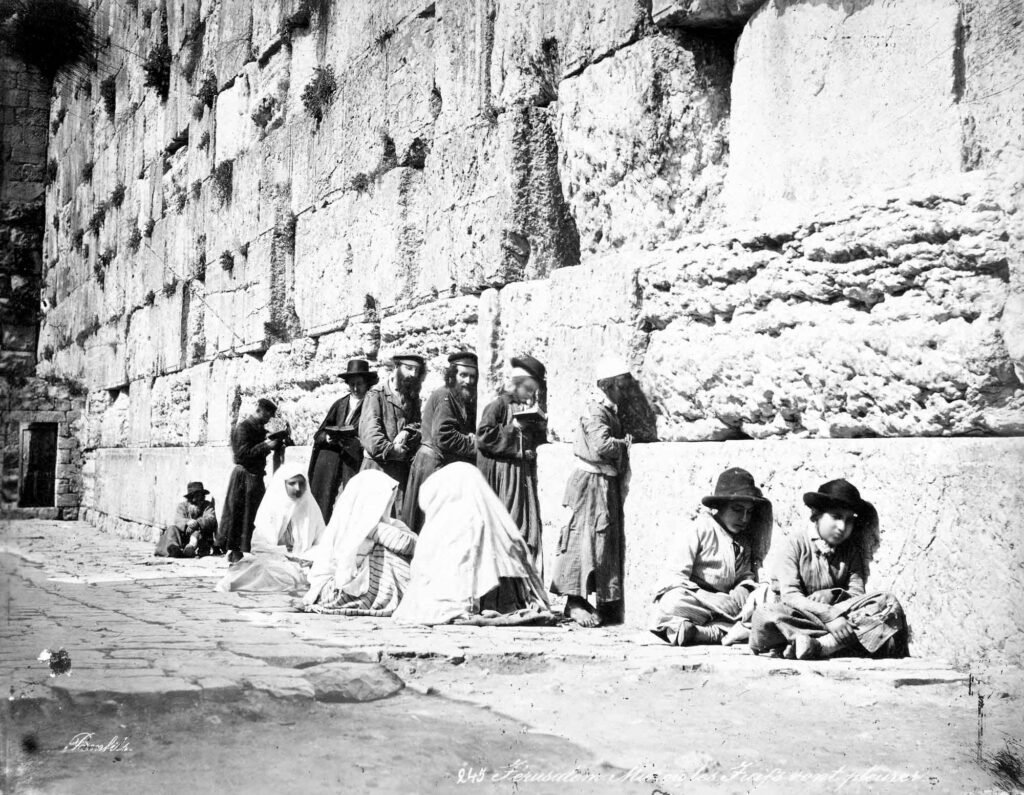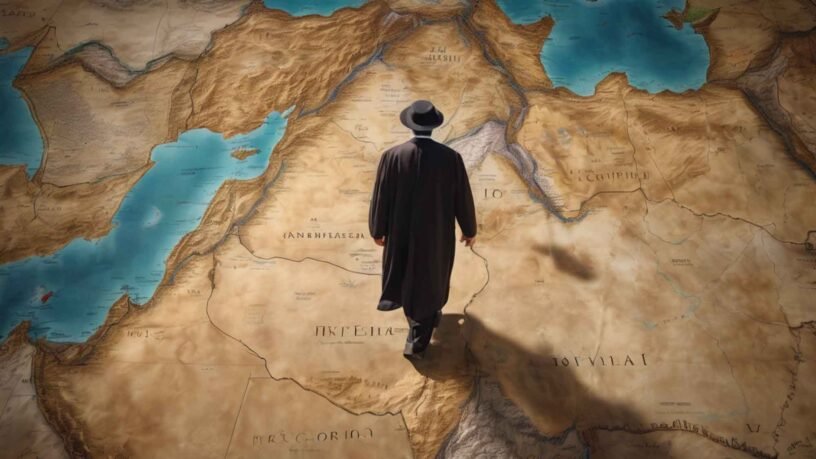Zionism, a blend of religious and political beliefs, aimed to unite Jewish individuals worldwide by settling them in their historic Middle Eastern homeland. This movement not only re-established Israel as the core of Jewish identity but also faced criticism for its assertive and prejudiced nature. Nonetheless, Zionism achieved its goal of creating a Jewish nation in Israel.

Zionism: An Overview
In simple terms, Zionism is the movement aimed at reestablishing a Jewish presence in Israel, with the term “Zion” referring to Jerusalem in Hebrew. Israel’s land has long been considered sacred by Jews, Christians, and Muslims alike, as the Jewish Torah includes stories of prophets instructed by God to return to their homeland.
Zionist beliefs have existed for centuries, but modern Zionism emerged in the late 19th century amid increasing anti-Semitism around the world. The wrongful conviction of French Jewish officer Alfred Dreyfus for treason in what became known as “the Dreyfus Affair” in 1894 is thought to have spurred the movement. Persecuted Jews began advocating for a return to their homeland and a restoration of Jewish culture there.
Theodor Herzl, an Austrian Jewish journalist and political activist, founded modern Zionism as a political organization in 1897. Following the Dreyfus Affair, Herzl wrote “Der Judenstaat” (The Jewish State), arguing for political recognition of a Jewish homeland in Palestine. He then organized the First Zionist Congress in Basel, Switzerland, and established the World Zionist Organization, serving as its initial president. Herzl is often seen as the father of modern Zionism despite his death before Israel’s official statehood.
The Balfour Declaration, penned by British Foreign Secretary Arthur James Balfour to prominent British Jew Baron Rothschild in 1917, expressed British support for a Jewish homeland in Palestine. This declaration was later publicized and incorporated into the League of Nations’ Mandate for Palestine in 1923 – a document that tasked Great Britain with establishing a Jewish national homeland in British-controlled Palestine. Key Zionists Chaim Weizmann and Nahum Sokolow were instrumental in securing this declaration.

Zionism and WWII
Throughout history, Jews faced discrimination, marginalization, and prejudice that manifested in various forms. In Russia, the pogroms of the late 19th and early 20th centuries were particularly brutal, involving organized attacks on Jewish communities, resulting in loss of life, destruction of property, and widespread displacement.
The Holocaust, orchestrated by the Nazis during World War II, further intensified the plight of Jewish people, leaving an indelible mark on the collective memory of the Jewish diaspora. It is believed that around 6 million Jews lost their lives in the Holocaust.
Before and during WWII, many European Jews sought refuge in Palestine and elsewhere. However, the aspirations of Jewish refugees were often thwarted by restrictive immigration policies in various countries, including the United States. That hindered their ability to escape the horrors unfolding in Europe.
The rise of the Zionist movement gained momentum during this period, driven by the belief that a Jewish homeland was essential for the safety and continuity of the Jewish people. The aftermath of the war further fueled the determination of Zionist leaders, who saw the establishment of an independent Jewish nation as a crucial response to the atrocities of the Holocaust.

The post-war period marked a turning point in the geopolitical landscape of the Middle East, especially in Palestine, where the British mandate faced increasing challenges. The withdrawal of the British army from the region in 1948 set the stage for a momentous declaration.
On May 14, 1948, David Ben-Gurion, the leader of the Zionist movement, proclaimed the establishment of the State of Israel. This declaration was a culmination of decades-long efforts by the Zionist movement to create a sovereign Jewish state. The declaration, however, was not without controversy, sparking regional conflicts and shaping the trajectory of international relations in the Middle East.
The establishment of Israel had far-reaching consequences, setting the stage for subsequent Arab-Israeli conflicts and influencing the broader discourse on self-determination and statehood in the aftermath of World War II.

Jewish Immigration to Israel
The roots of this migration trace back to the late 19th century when the Zionist movement emerged. The first major waves of Jewish immigrants arrived in the pre-state period, spurred by a combination of religious, ideological, and often desperate motivations, such as fleeing persecution in Europe.
Following the Holocaust, the massive influx of survivors further underscored the urgency and importance of establishing a Jewish state. In the early years of Israel’s existence, Operation Magic Carpet brought thousands of Jews from Yemen, while subsequent waves of immigration included Jews from North Africa, the Middle East, the former Soviet Union, and Ethiopia, contributing to the rich diversity of Israeli society.
The growth of Zionism led to a significant number of Jews moving to Israel. Between 1882 and 1903, about 35,000 Jews settled in the area. From 1904 to 1914, another 40,000 arrived.
In 1939, about 57% of Jews resided in Europe. By the end of WWII, this number dropped to only around 35%.
In 1949, over 249,000 Jewish settlers immigrated to Israel -the highest number in a single year.
From roughly 500,000 in 1945, the Jewish population in Israel grew to 5.6 million by 2010. Today, nearly 43% of all Jews live in Israel.

Zionism Today
Over its 120-year history, Zionism has seen various political, religious, and cultural ideologies emerge within the movement.
Zionists often disagree on core principles. Some are religiously devout while others lean secular. “Zionist lefts” usually support a less religious government and are open to land concessions for peace with Arab nations. “Zionist rights” argue for their land rights and prefer a government rooted in Jewish religious traditions.
Supporters view Zionism as a crucial endeavor to offer sanctuary for persecuted minorities and reestablish settlements in Israel. Critics argue that it is an extreme ideology that discriminates against non-Jews.
For instance, Israel’s 1950 Law of Return grants Jews around the world the right to become Israeli citizen, but this privilege is not extended to others.
Many Arabs, Palestinians, and international Jews oppose Zionism for various reasons. However, it’s undeniable that Zionism has significantly increased the Jewish population in Israel.




1 Pingback